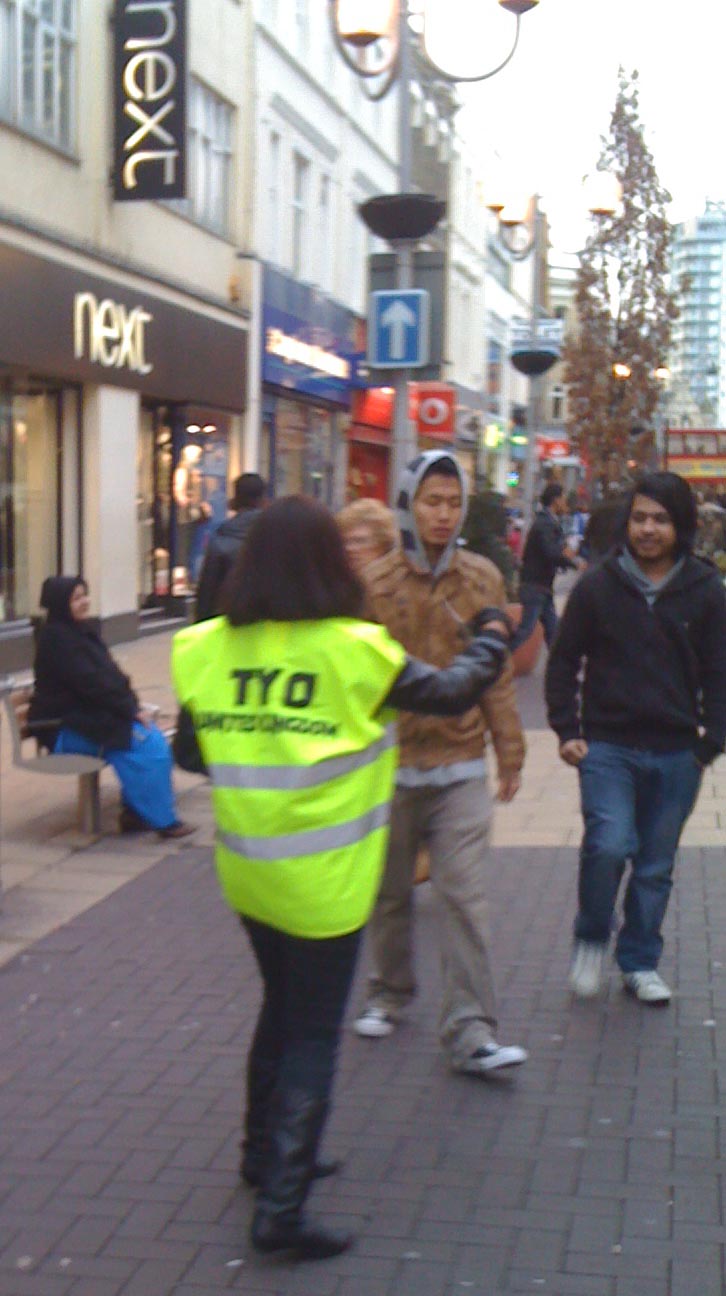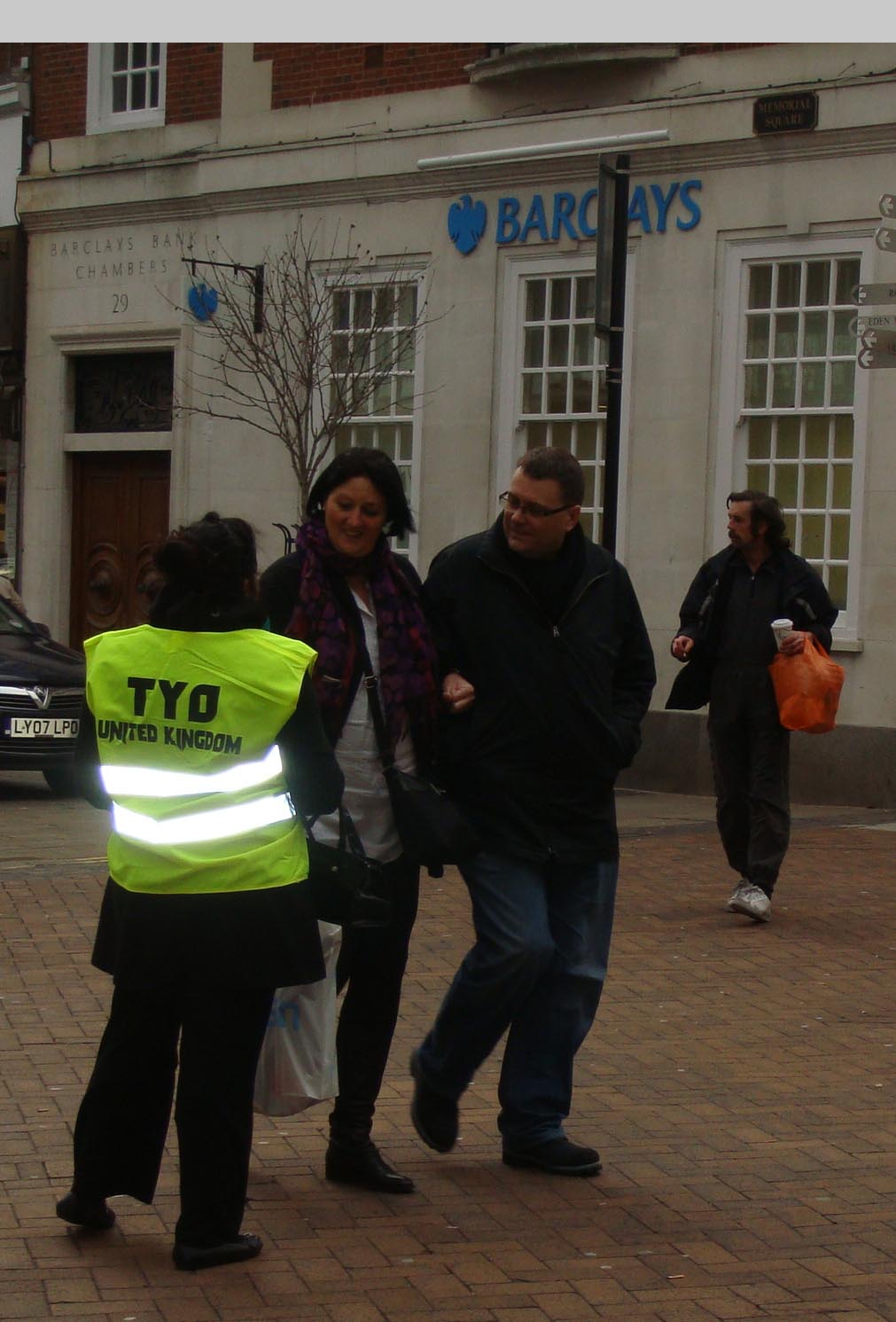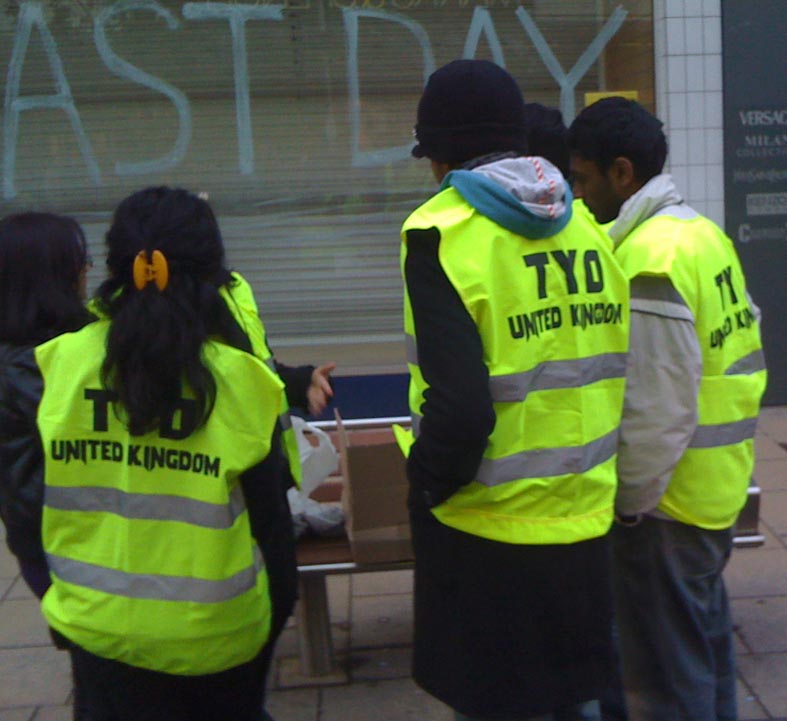 |
Groups of protestors outside retailers and business in Britain are not unusual. Most recently UK-Uncut activists launched a wave of sit-ins in and around corporations associated with tax dodging. That campaign turn on consumers not wishing to put money into pockets of those they believe are behaving unethically or exploitatively.
Amidst other campaigns-through-consumer, Tamil activists are also continuing to push for a boycott of Sri Lankan products.
 |
 |
 |
Last weekend TYO-UK (Tamil Youth Organisation) leafleted and canvassed in the London suburbs of Ilford and Kingston, focussing on streets on which firms like Marks & Spencer stocked made-in-Sri Lanka items.
Other recent actions include those on Oxford Street, London’s world-famous shopping strip, and other shopping centres in the city’s suburbs.
Building on the impact of international media reporting, TYO-UK activists handed out leaflets and conversed with shoppers. ‘Check-the-label’ and ‘Boycott-Sri Lanka’ were the themes.
Bundled up in his fluorescent jacket outside an M&S in Ilford, TYO activist Athi also persuaded passing youth to join him.
“We gave out my thousand leaflets in the space of an hour and a half,” he beamed later, rubbing his hands together in the biting cold.
“Normally people don’t want to take their hands out of their pockets in weather like this. They just want to hurry home for a hot drink,” he said.
“But Sri Lanka raises interest [now]. Some people stop to chat about the situation. People are genuinely horrified when their spending is linked to the repression there.”
“News agencies cover Sri Lanka’s situation and people have seen the 2009 mass protests in Westminster, so aren’t surprised to see us outside their local shopping centres,” TYO’s local coordinator explained. “Even the retailers understand the logic, though they’re obviously not happy.”
“What we need to do is explain [to consumers] how they can help to alleviate the situation back home. Once the link is understood, most agree to check the label and not buy Sri Lankan products again. Some even return purchases!”
It was in London that the international boycott of South Africa was initiated in 1960 - three decades before Apartheid rule finally ended.
As the ANC (African National Congress) website recalls, the boycott emerged when,
“In London a committed group of South African exiles kept in touch with events back home and worked to alert British public opinion to the evils of apartheid.”
The campaign struggled to gain momentum at first, but later, “Britain provided fertile ground for the campaign.”
